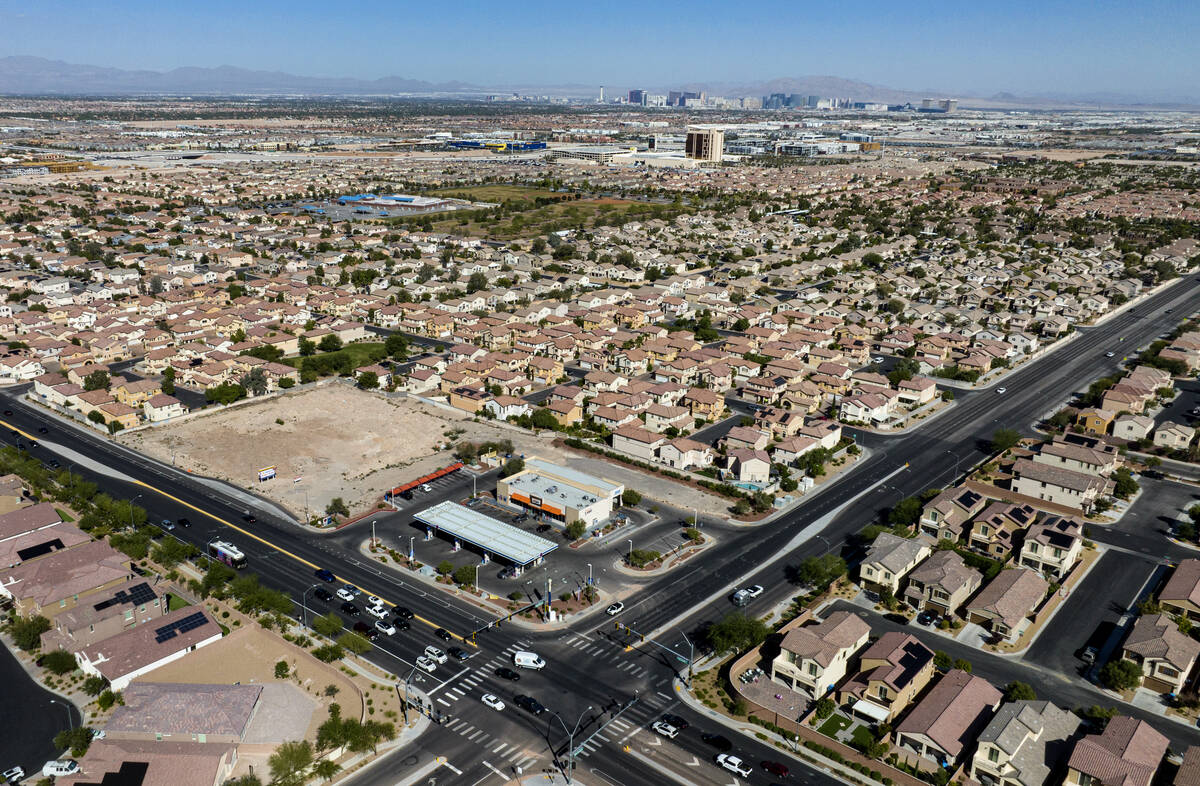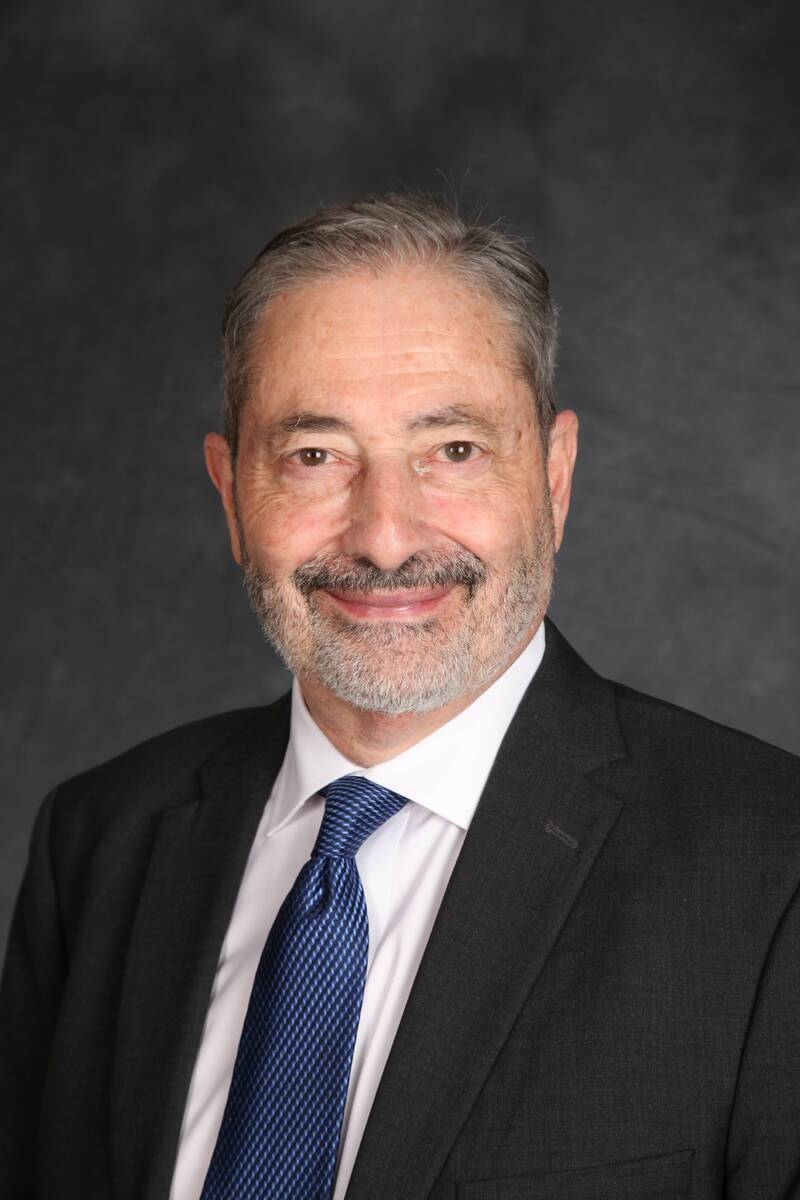Why isn’t there more land to develop in Las Vegas? Industry blames BLM
A former long-time Bureau of Land Management employee said there is nothing stopping the agency from releasing prime land in the valley to help alleviate the current real estate crisis crippling the Las Vegas Valley.
Mike Ford, one of the owners of Las Vegas-based Abbey, Stubbs & Ford, a public lands consulting firm, said there are a few magic numbers to keep in mind when looking at this issue.
“There’s 2.9 million acres of BLM land in Clark County, and that’s what we really need to focus on because land managed by the other (federal) agencies is generally not available for disposal because it has environmental attributes or it’s part of a congressionally designated special management unit.”
Ford said the Southern Nevada Public Land Management Act passed in 1998 identified around 67,000 acres out of the 2.9 million potentially available for disposal in the Las Vegas Valley that could be utilized for either commercial or residential development. He added around 33,000 acres of other small BLM parcels are littered throughout the county and are identified for disposal that could also be developed.
“The idea was for the BLM to be totally out of the urban land management business in the valley within five to 10 years,” he said about the original 1998 act that saw Congress direct the federal government concerning the land. “And that hasn’t happened.”
The federal government owns more than 80 percent of the state, the highest rate in the country and approximately 88 percent of Clark County with the BLM managing more than half of that.
Multiple commercial brokers, stakeholders and analysts who spoke to the Las Vegas Review-Journal expressed two grievances with the valley’s land shortage: restrictive zoning issues and permit delays from Clark County and the BLM’s reluctance to let land go or auction it off in a timely manner. Ford said it’s simply a case of bureaucracy and over management of what is now a prime resource driving up prices, delaying projects and hampering development across the valley.
“When you have 2.9 million acres of land in Clark County, some of it environmentally sensitive land, which is really important, managing rural lands, why would (the BLM) spend 90 percent of the time on the 67,000 acres that are urban lands that are better managed by local units of government? That’s the million-dollar question.”
A case of government bureaucracy?
John Restrepo, a principal with Las Vegas-based RCG Economics, an economic consultancy company, said a lot of the complaints he’s heard over the years pertain to the BLM’s appraisal process for the land to be put up for auction.
“The process by which they put a value on the land is too high, and I think the BLM was certainly politically concerned with the idea that they don’t want to look like they’re giving land away that’s owned by the taxpayers, and so they made these very restrictive appraisal guidelines and slowed some of the processes down.”
A master-planned community with more than 3,000 homes is slated for 505 acres of former federal land in the northwest Las Vegas Valley, part of an auction that took place last November.
Theresa Coleman, the BLM Southern Nevada District manager said in an email response to the Review-Journal that they work closely with local governments concerning the land to be made available for disposal.
Parcels to be made available for sale are determined through a joint selection process, she said. For a parcel of land within the Southern Nevada Public Land Management Act disposal boundary to be sold, the interested party must first identify the parcel to the local government where the land is located. If the local jurisdiction agrees that the parcel should be sold, it will submit a nomination to sell the land by the BLM. BLM then completes the necessary processes to ensure the parcel may be offered for sale.
BLM has disposed of 44,000 acres in the Las Vegas Valley since 1998, and 27,000 remains available within the boundary. Coleman added land sales are usually held twice a year but that the “frequency varies based on demand for land to be nominated.”
The city of Henderson recently asked the federal government to auction off 58 acres over eight parcels within its jurisdiction, and the land is located south of Saint Rose Parkway at East Bruner Avenue and west of Raiders Way.
Steve Neiger, a commercial real estate broker and principal at CAST who is also on the board of directors for the Southern Nevada chapter of NAIOP, a commercial real estate development association, said the private sector already has itself sorted out. He said the commercial side works regularly with the Southern Nevada Homebuilders Association and that if more land were available, what was needed would get built, either commercial or residential.
Residential stakeholders who also spoke to the Review-Journal echoed these thoughts and Neiger said it’s time for the government to get out of the way and let the private sector do its job.
“From the commercial side, our organization, our members, they build what they think the market needs, they’re not going to build something they can’t lease up, right? So it’s whatever the demand is.”
Contact Patrick Blennerhassett at pblennerhassett@reviewjournal.com.




















